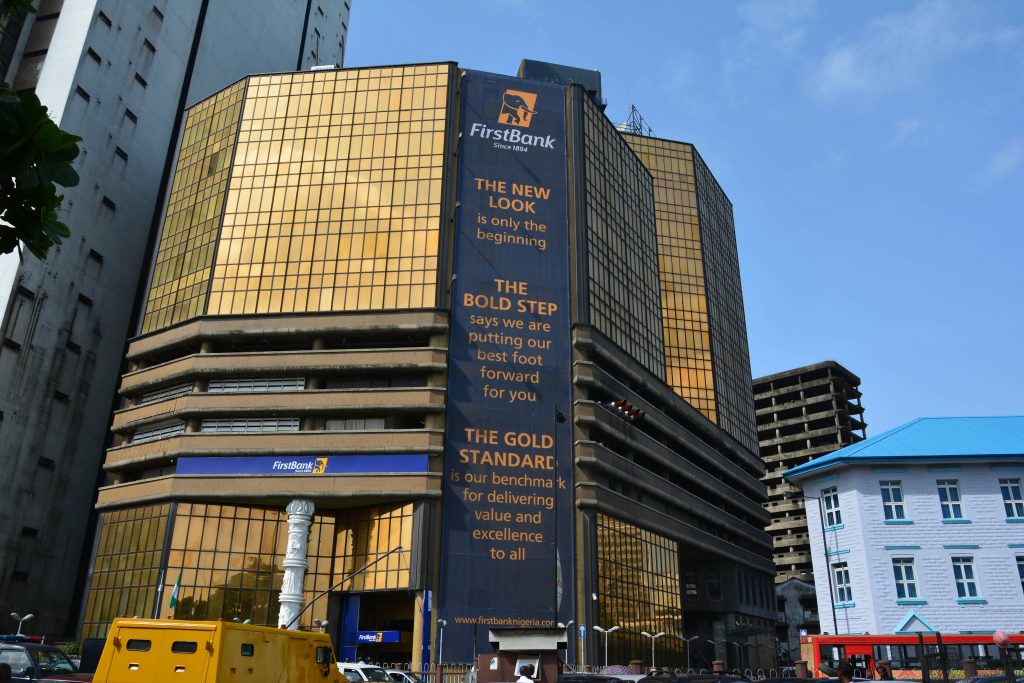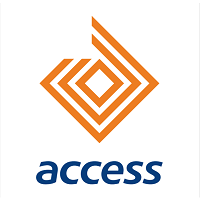brand
Stanbic IBTC records improvement in key metrics in the first quarter amid yield pressure

 Stanbic IBTC, a member of Standard Bank Group, has announced its three months unaudited results for the period ended 31 March 2021.
Stanbic IBTC, a member of Standard Bank Group, has announced its three months unaudited results for the period ended 31 March 2021.
Commenting on the results, Dr. Demola Sogunle, Chief Executive Stanbic IBTC, said: “The domestic economy remains quite fragile. Negative real returns prevailed in the first quarter as headline inflation continued on the rise, currently above 18% as of March 2021. Economic activities are expected to improve as the authorities take on appropriate actions and business confidence improves. Just recently, in April 2021, the CBN resumed dollar sales to foreign portfolio investors for the first time since December 2020 to clear the backlog of foreign exchange demand.
The Group’s profitability in the first quarter moderated year-on-year due to pressure on trading income: trading activities in our Global Markets business slowed down compared to prior year, operating expenses from regulatory induced charges increased,as well as the continued pressure on risk asset yields. The decline was partly cushioned by the year-on-year improvement in net fee and commission revenue as well as an impairment write-back of ₦155 million in Q1 2021 compared to the charge of ₦1.97billion in prior year. The impairment write-back was due to releases and after write-off recoveries achieved during the quarter.
Again, the diversity of our earnings proved supportive during the period. Wealth’s profitability improved from prior period and provided succour for the contraction in profitability of the Corporate and Investment Banking and the Personal and Business Banking businesses. That said, gross customer loans continued to grow, increasing by 16% from the December 2020 position. The continued loan growth would support margin accretion and ultimately compensate for the pressure on yields. Customer deposits also increased by 6% from the December 2020 position, most of the growth arose from cheap deposits and resulted in further improvement in the CASA ratio to 83.3% (FY 2020: 82.8%), which was positive for our funding costs. Our capital and liquidity positions remained robust in Q1 2021.
Our latest addition, Stanbic IBTC Insurance Limited commenced full operations during the quarter. Our Pension business introduced the Loyalty program, UMatter, to appreciate our esteemed clients. Our Asset Management business launched the Stanbic IBTC Enhanced Short-Term Fixed Income Fund which invests in short term bonds issued by the Government and corporate entities. We are committed to achieving our Full Year 2021 Guidance.”
Financial highlights
Income statement
- Gross earnings of ₦45.7 billion, representing 26% decrease (Q1 2020: ₦61.4 billion)
- Net interest income of ₦15.9 billion, down 14% (Q1 2020: ₦18.5 billion)
- Non-interest revenue of ₦23.1 billion, down 29% (Q1 2020: ₦32.6 billion)
- Total operating income of ₦38.9 billion, down 24% (Q1 2020: ₦51.2 billion)
- Profit before tax of ₦12.1 billion, down 50% (Q1 2020: ₦24.4 billion)
- Profit after tax of ₦11.3 billion, down 45% (Q1 2020: ₦20.6 billion)
- Cost to income ratio of 69.2% (Q1 2020: 48.4%)
- Return on average equity (annualised) 11.6%
- Return on average assets (annualised) 1.7%
Financial position
- Total assets increased by 3% to ₦2.569 trillion (December 2020: ₦2.486 trillion)
- Gross loans & advances up 16% to ₦762.7 billion (December 2020: ₦655.3 billion)
- Non-performing loans increased by 3% to ₦27.2 billion (December 2020: ₦26.5
billion)
- Non-performing loan to total loan ratio of 3.6% (December 2020: 4.0%)
- Customer deposits increased by 6% to ₦867.0 billion (December 2020: ₦819.9
billion)
- Deposit mix improved to 83.3% (December 2020: 82.8%) of current-and-savings accounts deposits to total deposits
Capital and liquidity
The Group maintained adequate level of capital during the period. The Group’s total capital adequacy ratio closed at 22.7% (Bank: 17.8%), which is significantly higher than the 10% minimum regulatory requirement.The Group maintained a strong and diversified funding base during the first quarter of 2021. The Group’s liquidity ratio was above the regulatory minimum requirement of 30%, which indicates the Group’s sound position to continue meeting its liquidity obligations in a timely manner.If you have any query, please do not hesitate to contact the undersigned on the numbers listed below:
FOR FURTHER INFORMATION:
Stanbic IBTC Holdings PLC
Idris Toriola (Head, Investor Relations and Strategy) +234 1 422 8501
Kunle Adedeji (Group Chief Financial Officer) +234 1 422 8767.
brand
FIRSTBANK MARKS SIGNIFICANT MILESTONE: ₦1 TRILLION IN INSTANT DIGITAL LOAN DISBURSEMENTS
brand
FIRSTBANK PARTNERS UNGC TO DRIVE SUSTAINABLE FINANCE AND UNLOCK CAPITAL FOR DEVELOPMENT

 FirstBank, the West Africa premier financial institution and financial inclusion services provider, has strengthened its partnership with the United Nations Global Compact (UNGC) to reaffirm its commitment to driving sustainable finance and unlocking capital for development. This ongoing partnership was reinforced at the recently concluded Fourth International Conference on Financing for Development (FfD4) hosted by the United Nations Department of Economic and Social Affairs (UN DESA) in Seville, Spain.
FirstBank, the West Africa premier financial institution and financial inclusion services provider, has strengthened its partnership with the United Nations Global Compact (UNGC) to reaffirm its commitment to driving sustainable finance and unlocking capital for development. This ongoing partnership was reinforced at the recently concluded Fourth International Conference on Financing for Development (FfD4) hosted by the United Nations Department of Economic and Social Affairs (UN DESA) in Seville, Spain.
The FfD4 Conference brought together global leaders, policymakers, and private sector experts to discuss innovative solutions to address the growing SDG financing gap and unlock capital for development in fragile and underserved regions.
FirstBank’s Chief Risk Officer, Patrick Akhidenor, represented the bank at the conference and highlighted two FirstBank flagship initiatives driving resilience finance in Nigeria: The Solar Equipment Financing initiative and the revamped FirstGem Fund. The Solar Equipment Financing initiative offers tailored financing options for the purchase and installation of solar power systems, ensuring access to clean, reliable, and affordable energy solutions. The FirstGem Fund, a women-focused proposition, provides single-digit interest loans to women entrepreneurs without collateral requirements, targeting funding gaps in critical sectors.
‘’We are committed to driving sustainable finance and unlocking capital for development,” said Patrick Akhidenor. “Our partnership with UNGC and participation in the FfD4 Conference demonstrate our dedication to innovative finance solutions that address the SDG financing gap.”
Sanda Ojambo, CEO of UNGC, emphasized the need for innovative, inclusive financial models for underserved regions. “The private sector must play a central role in shaping fit-for-purpose, scalable finance solutions,” she said. “De-risking tools and blended finance can help unlock capital and drive meaningful impact.
FirstBank’s partnership with Development Finance Institutions (DFIs) and its SMEConnect hub demonstrate its capacity to lead efforts in sustainable finance. The bank provides training, networking, and tailored financing to SMEs across various sectors, including education, healthcare, and retail
brand
Access Holdings Reaffirms Strategic Growth Plan from Expansion to Optimisation


Access Holdings PLC, the parent company of Access
-

 news5 years ago
news5 years agoUPDATE: #ENDSARS: CCTV footage of Lekki shootings intact – Says Sanwo – Olu
-

 news2 years ago
news2 years agoEnvironmental Pollutions : OGONI COMMUNITY CRIES OUT, THREATENS TO SHUT DOWN FIRSTBANK,SHELL OIL COMPANY OPERATIONS FOR NOT PAYING COURT AWARD
-

 lifestyle5 years ago
lifestyle5 years agoFormer Miss World: Mixed reactions trail Agbani Darego’s looks
-

 health4 years ago
health4 years agoChairman Agege LG, Ganiyu Egunjobi Receives Covid-19 Vaccines
-

 lifestyle4 years ago
lifestyle4 years agoObateru: Celebrating a Quintessential PR Man at 60
-

 health5 years ago
health5 years agoUPDATE : Nigeria Records 790 new cases of COVID-19
-

 politics3 months ago
politics3 months agoBreaking : Oborevwori , Okowa others dumps PDP, defects to APC
-

 news2 months ago
news2 months agoBREAKING: Tinubu swears in new NNPCL Board


